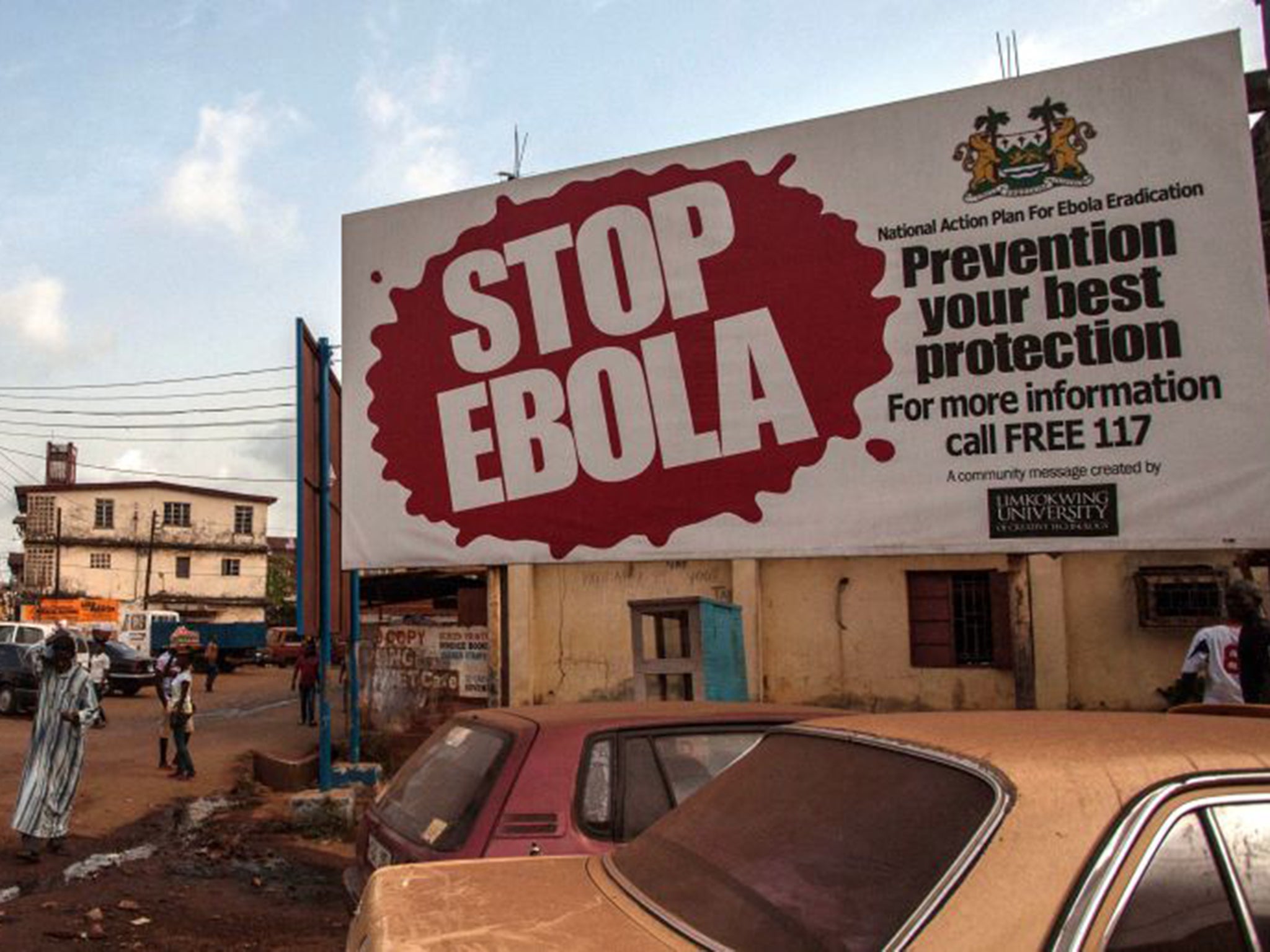Ebola: Despair as experts concede another outbreak of the disease could be round the corner
It was supposed to be a milestone: no new cases in West Africa - but nothing about the deadly virus is that simple

Your support helps us to tell the story
From reproductive rights to climate change to Big Tech, The Independent is on the ground when the story is developing. Whether it's investigating the financials of Elon Musk's pro-Trump PAC or producing our latest documentary, 'The A Word', which shines a light on the American women fighting for reproductive rights, we know how important it is to parse out the facts from the messaging.
At such a critical moment in US history, we need reporters on the ground. Your donation allows us to keep sending journalists to speak to both sides of the story.
The Independent is trusted by Americans across the entire political spectrum. And unlike many other quality news outlets, we choose not to lock Americans out of our reporting and analysis with paywalls. We believe quality journalism should be available to everyone, paid for by those who can afford it.
Your support makes all the difference.Bangalee Yogee, a 23-year-old Ebola survivor, ducks under washing lines and twists around the narrow sandy alleyways of his community, an informal settlement set on a sandbar known as West Point.
Flanked by another six survivors from other communities, Mr Yogee is searching for fellow survivors - seeking to sign them up for a five-year study into the long-term effects of Ebola. It is something Mr Yogee believes in, having enrolled himself, says it is about “survivors understanding themselves and the virus”.
The importance of such work has been underlined in recent days, with the re-emergence of at least one case of Ebola in Sierra Leone. The timing was unfortunate. An announcement on 14 January from the World Health Organisation (WHO) - declaring Liberia Ebola-free - was supposed to be a milestone. The country had gone 42 days without a case - twice the believed incubation period for the virus. That news appeared to signal the whole of West Africa, the epicentre of the outbreak, was said to be Ebola-free. The other nations worst-affected by the epidemic which has killed over 11,000 people, Guinea and Sierra Leone, had been declared free of the disease last year.
Liberia had been through the process before, having been given the all-clear on two separate occasions last year, with isolated cases popping up again. That fate now befell Sierra Leone. Within hours of the WHO announcement officials said the country was investigating a case, and by 15 January the death of a 22-year-old woman had been reported.
“I don’t think [Ebola-free] is a useful term. I knew it was just a matter of when rather than if,” says Dr Mosoka Fallah, an epidemiologist who led contact tracing efforts in Liberia and is the lead investigator on the five-year study, which is sponsored by the country’s National Institute for Health.
The WHO had warned that further flare-ups were likely when making their announcement, but probably did not expect one so fast. Officials subsequently repeated the need for vigilance.
Mr Yogee, who became infected when caring for his father, a drug dispenser in West Point, who treated an infected patient, is interested in longer-term health issues facing survivors. In West Point, he approaches a woman grinding pepper and boiling fish over a charcoal fire. “We are in search of Ebola survivors, those who were taken to [hospital]. The people that came back are experiencing different kinds of sickness – problems with the ears, eyes, bone and impotency; some women miscarry, others don’t receive on time,” he tells the woman who continues to prepare lunch. “If you see them, talk to them and tell them to enroll.”
Over a thousand of Liberia’s survivors and over 700 of their close contacts whom either cared for them during the outbreak or are intimate partners are participating in the five-year study. The goal is to reach almost all 1,545 registered survivors across the country in the coming year. Nearly all of the 19 registered survivors in the township of West Point have enrolled, a symbol of how far the community, that was an urban epicentre for the virus and where denial was rife, has come. It is also an illustration of how far Liberia has come after the outbreak that claimed the lives of around 5,000 Liberians.
However, the study underlines how little is still known about the long-term effects of the virus on the health of survivors. Whether they can transmit the virus through breast milk, blood, semen and other bodily fluids, or whether they actually remain immune to the virus. As Mr Yogee makes clear to those on the streets on Monrovia, many survivors have vision and hearing issues. Some others experience physical and emotional pains, fatigue and other problems. A number of female survivors also have suffered miscarriages or had stillborn children for reasons that are still not clear, hence the research.
For others, the pain of the outbreak is still raw. Jackie Sudue is a midwife and survivor who works at Redemption Hospital - she was infected while attending to a pregnant woman who had Ebola. Ms Sudue says although there may be cases from time to time, she was confident a big outbreak would not happen again.
“I don’t see that thing happening again here because now we are all educated,” she says while in scrubs on a shift at the hospital.
The researcher, Dr Fallah, is also adamant: “There will be sporadic flare ups and we just need to know how to contain it,” he says. He adds: “We have learned a lot from our mistakes.”
Join our commenting forum
Join thought-provoking conversations, follow other Independent readers and see their replies
0Comments